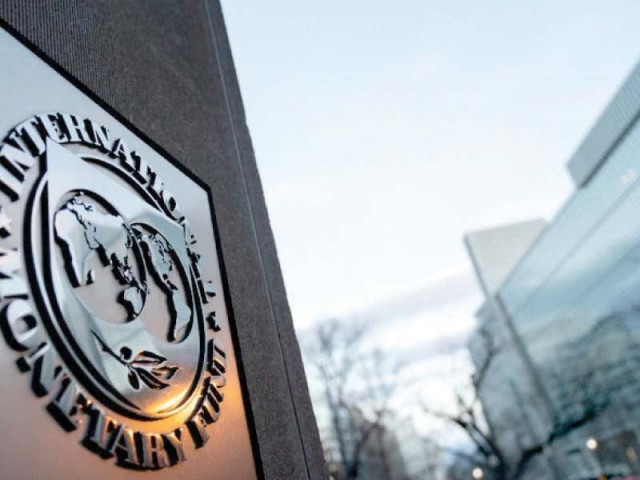TSA deadline will be missed: IMF
MoF unaware of which govt departments own 484 untraceable bank accounts

Pakistan will miss its end-December deadline to close all bank accounts maintained by the public sector entities and defence ministry in commercial banks, and transfer the money to the central bank, reveal findings from the International Monetary Fund (IMF). The cumulative balance in these accounts amounts to about Rs2.9 trillion.
There was also a startling disclosure that the Ministry of Finance is unaware of which government departments own the 484 bank accounts that remain untraceable.
The IMF’s technical team, that visited Islamabad in October, has finalised a draft report on the status of the Implementing a Treasury Single Account (TSA) and Managing Fiscal Risks by Pakistan. The technical mission is separate from the staff level visit for the ninth review of the programme which has been consistently delayed for the past two months.
The technical mission’s findings showed that it will take at least a year before the country can fully implement the single treasury account system, from where all the public funds are fully accountable.
After the successful implementation of the first stage in 2021, the TSA reform has slowed down significantly showing that the second, and final stage, will not be completed by the end of 2022, reveals findings of the technical mission.
The IMF said that there was still no clarity on how much of the public sector’s money was out of sight, but that the total potential amount of these balances is estimated to be between Rs1.2 trillion to Rs2.9 trillion.
Assuming that the reduction in borrowing will be equivalent to the total amount of these resources, based on October 2022’s interest rates, shifting this money to the government coffers could save the country yearly interest expenses between Rs159 billion to Rs385 billion, as per the findings.
The transfer of the estimated Rs2.9 trillion would also create room for more public sector investment and a reduction in government borrowing, according to the draft report.
Pakistan had committed that by December 2022 it will close all commercial bank accounts maintained by the defence ministry, armed forces, and public sector entities including the Oil and Gas Regulatory Authority (OGRA) and National Highway Authority (NHA). The treasury single account also ensures transparency and better management and availability of cash.
The IMF team met with officials from the NHA and Motorway Police, OGRA, Higher Education Commission (HEC) and the National Electric Power Regulatory Authority (NEPRA) to understand their resistance in transferring the requisite funds to the central bank.
The Mission’s findings showed that the earliest date to close all such accounts might be October 2023 – a time when there will be no IMF programme and no pressure on any organisation to surrender their funds to the central bank on which they are earning billions of unaccounted rupees in interest.
According to the IMF’s assessment, and weighing the progress made so far, substantial work still needs to be done before the TSA-II can be piloted, let alone be fully operational.
“A comprehensive inventory of the bank accounts, which is an essential initial prerequisite for a TSA reform process, is currently still missing,” it added.
In violation of the Public Finance Management Act, commercial banks are not providing data on government accounts to the Ministry of Finance.
At present, the defence ministry, public entities and some autonomous corporations still maintain commercial bank accounts -- taking the money outside the federal government’s purview.
Under the first phase, commercial bank accounts belonging to the government ministries and attached departments had to be closed by May 2021. Under the first phase known as TSA-I, the accounts of ministries, departments and agencies were closed – but all accounts have yet to closed.
Of the 6,610 accounts identified, only 4,581 were closed with their cumulative balance of Rs5 billion transferred to the Federal Consolidated Fund. The report revealed that the federal government did not know the ownership of 484 other bank accounts.
The remaining 1,550 accounts are used for employee contributions and donor-funded projects. The finance ministry had also relaxed rules for some security-related accounts and those maintained by the Rangers and Frontier Constabulary.
In addition to the armed forces, even civilian departments have remained reluctant to give up their accounts. These accounts are being funded by an overt circumvention of the rules – creating revenue streams not permitted by parliament.
The IMF’s requirements, if successful, will help bring better fiscal management and provide a cash base to the government. This cash base is currently unduly available to commercial banks instead.
The IMF stated that “the benefits of the implementation of phase one, of better cash management, were low but the real benefit will come from the implementation of TSA-II.”
Published in The Express Tribune, December 10th, 2022.
Like Business on Facebook, follow @TribuneBiz on Twitter to stay informed and join in the conversation.



















COMMENTS
Comments are moderated and generally will be posted if they are on-topic and not abusive.
For more information, please see our Comments FAQ